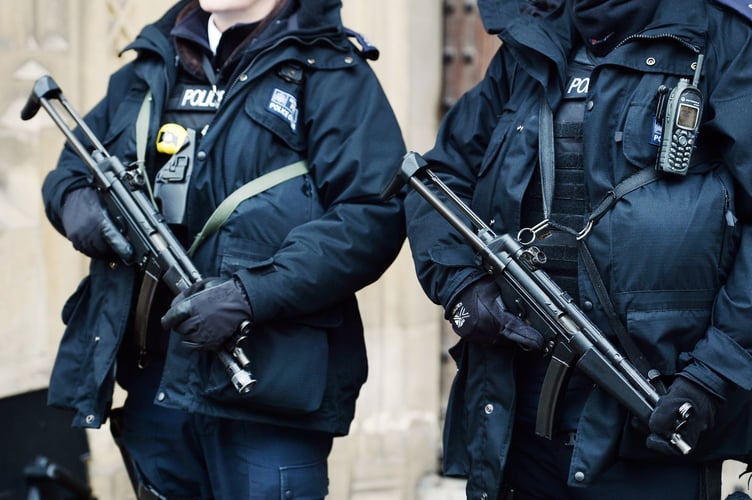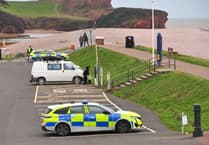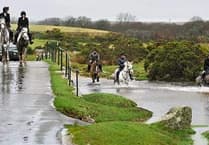Devon and Cornwall Police conducted more firearms operations last year, recent figures show.
It comes as the rate of firearms operations varied significantly across police forces in England and Wales.
The National Police Chiefs’ Council said this variation "is reflected in local crime rates" and "is to be expected", adding "the British model of policing remains predominantly unarmed".
Police firearms operations involve the deployment of armed officers who may have to protect themselves or others from a person with a firearm or other weapon, or is considered so dangerous firearms may be necessary.
Home Office figures show Devon and Cornwall Police conducted 295 of these operations in the year to March – up from 257 the previous year.
It means 16 operations per 100,000 people were logged in Devon and Cornwall – up from 14 per 100,000 in 2023-24, and below the 28 per 100,000 average rate recorded across England and Wales.
Police firearms operations rates varied significantly across the two nations: Cleveland (68), the West Midlands (67) and Gwent (49) had the highest rates per 100,000 people, while Lancashire and North Wales (12) and Cumbria (11) had the lowest.
An NPCC spokesperson said police firearms operations include "a range of scenarios".
They said: "Many will be pre-planned operations for example the arrest of armed criminals or providing armed protection for high profile individuals, others will be spontaneous responses to crime in progress or responding to calls from members of the public where the deployment of armed officers is deemed necessary to protect the public or unarmed colleagues."
The number of police firearms operations across England and Wales has declined in recent years, after a peak in 2018-19.
Some 17,249 such operations were recorded in the two nations in the year to March – down 2% from 17,589 the year before and the lowest figure since 2016-17.
The two largest police forces – the Metropolitan Police and West Midlands Police – accounted for 28% of firearms operations last year.
A spokesperson for StopWatch, which challenges police use of stop and search powers, said the declining number of firearms operations could be due to "fewer deployments of firearms units for the purpose of counterterrorism policing".
They explained the terrorism threat, especially following the Manchester Arena bombing and several attacks in London in 2017, led intelligence agencies to adopt "a position of heightened suspicion" for a few years, when the UK threat level was deemed critical or severe.
StopWatch executive director Habib Kadiri added the charity believes "the number of police firearms operations and officers matters less than what they are doing with such great responsibility".
He said "the creeping use of firearms on civilians" outside of counterterrorism operations "suggests there is little reason for members of the public to feel safer about the running of firearms units today".
The NPCC spokesperson said the decreasing number of operations "is seen as positive".
The figures show just four incidents where police firearms were discharged at people took place in the year to March.
While this was double the two in the previous year, it was lower than the 10 in 2022-23 and than a peak of 13 in 2018-19.
The NPCC said the discharge of a police firearm remains "a rare occurrence", adding this "confirms the quality of the officers and their training.
A Home Office spokesperson said: "The use of firearms by the police should always be a last resort, considered only where there is a serious risk to public or police safety. Deadly force continues to be used very rarely by police in this country, which is testament to the training, skill and judgement of firearms officers and commanders.
"All forces in the UK maintain an armed capability and police chief constables determine how they meet their operational requirements in their areas based on thorough assessments of threat and risk."




